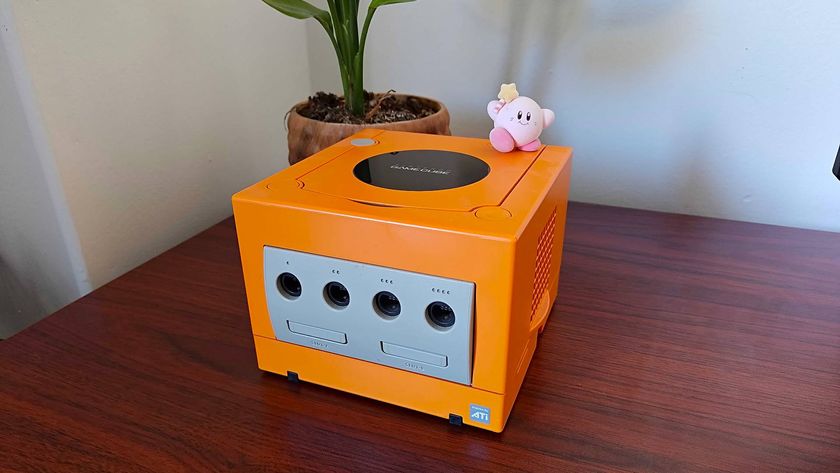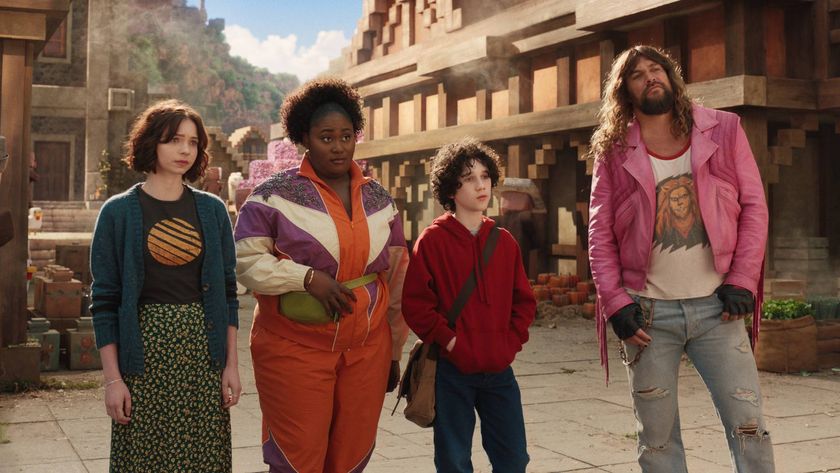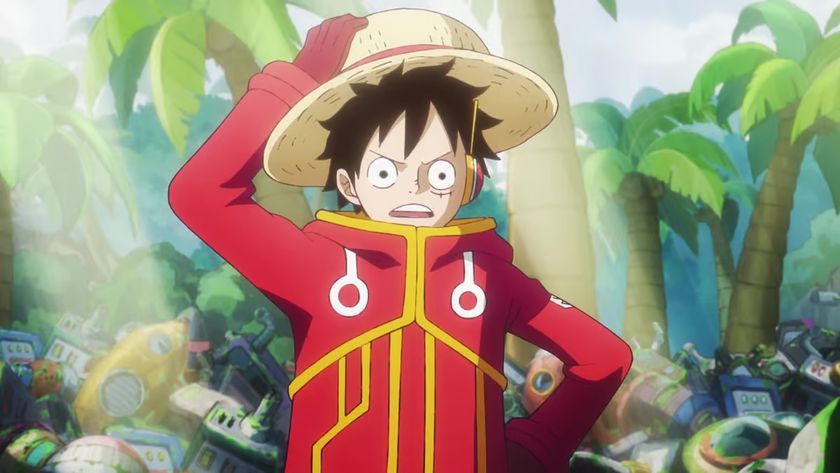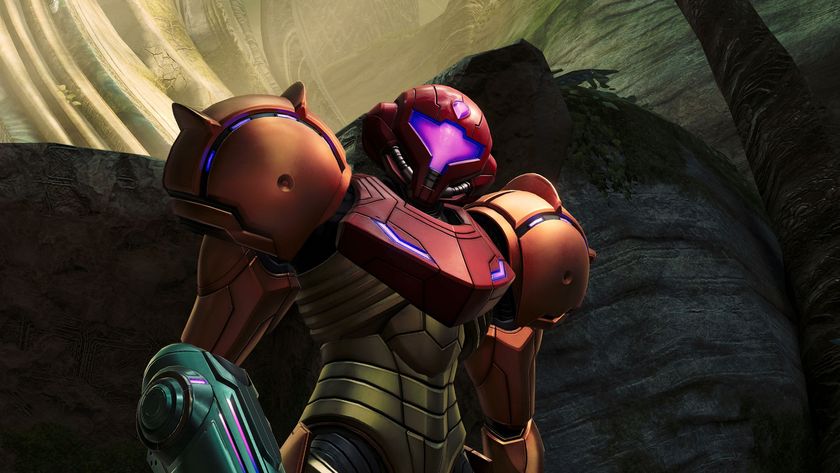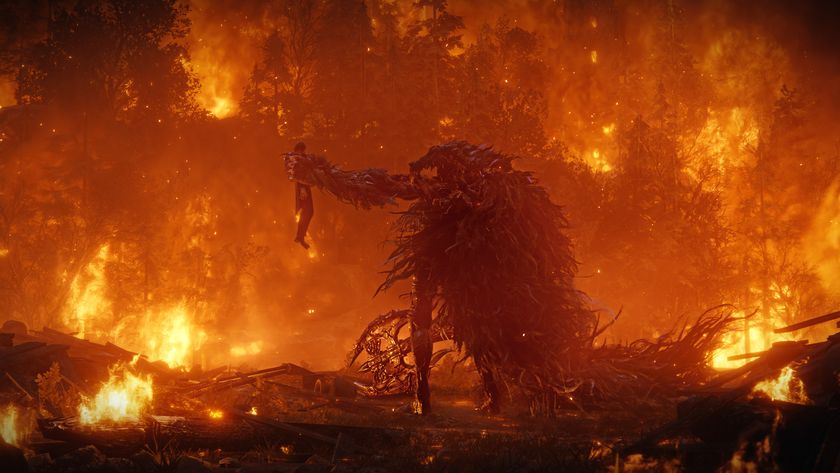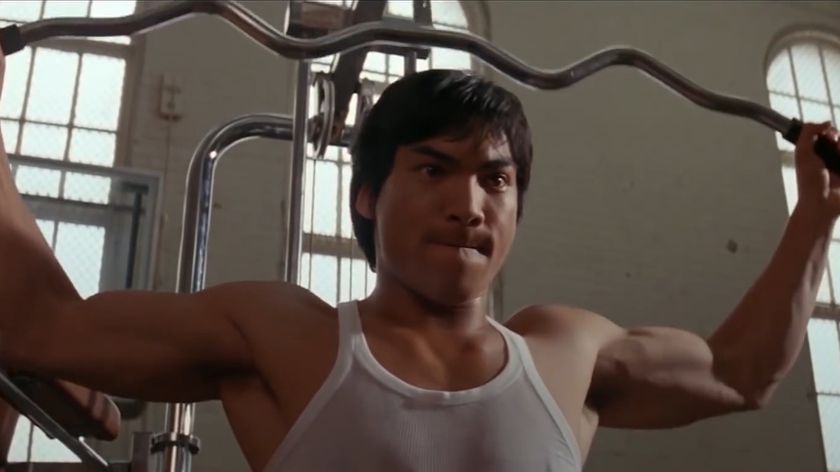GR: How many iterations of the same environment do you go through for a game like Dead Space? Can you give some examples of what made one version of an area better than another one?
IM: An environment in Dead Space would go through many iterations. First, the designer of the area creates a very rough version of the space, something we can play and explore in right away. It’s basically a bunch of cubes at this point, but the idea is there. At the same time, concept artists are doing paintings of the area, in a broad form, trying to get the feeling nailed down.
After that’s been worked on a while, we’d take that rough world and build what we called “3D concept art.” This was a version of the world that was extremely detailed, but built out of untextured parts and props and whatever we could get our hands on. This helped us get a feel for the shapes, silhouettes, and lighting that would create the mood and interest. When the space felt and played right, it would again go to our concept art department, who would produce detailed paintings, showing the surface quality, lighting, and would turn those shapes into new technical designs and final concepts.
Then the rubber met the road, and the space would go to our Level Design and Environment Art groups, who would build a tight, detailed world and pack it with interactive elements, visual effects, and shaded surfaces with shadows and reflectivity.
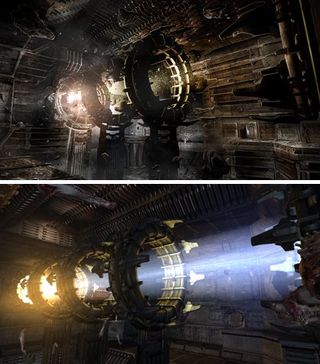
Above: The initial concept of an area and the final in-game render of the same area
GR: Do you tend to look at outside sources for inspiration? What kinds of places and things were you taking inspiration from Dead Space from?
IM: You’d think that making up a spaceship is easy, and in a way it is, since you don’t have to follow some rules. However, making up a place that feels believable and real is very hard. The key influences for us were not so much other games and movies, which leads to a “me too”-looking game. The real key was reference from the real world.
Sign up to the 12DOVE Newsletter
Weekly digests, tales from the communities you love, and more
Several things were key influences on the Dead Space world. Oil rigs, aircraft carriers and industrial mining operations were the basis for the living system and operations of the ship. We used the construction rules of European gothic architecture extensively, because in addition to having interesting, detailed patterns and lines, gothic structures have a lot of visible supports. You can really see how the weight is distributed. By using these principles, our ship looks real and believable, not like a fake movie set.
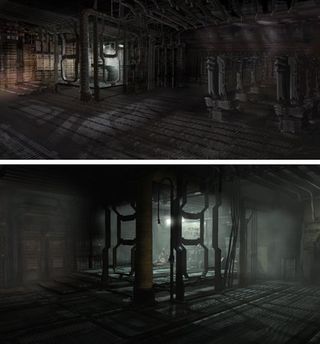
Above: This room is a good example of oil rigs, aircraft carriers and mining operations influencing the game
For lighting fixtures, we looked at surgical and dentist lighting, because you never feel good under those, especially as they get old and yellow.
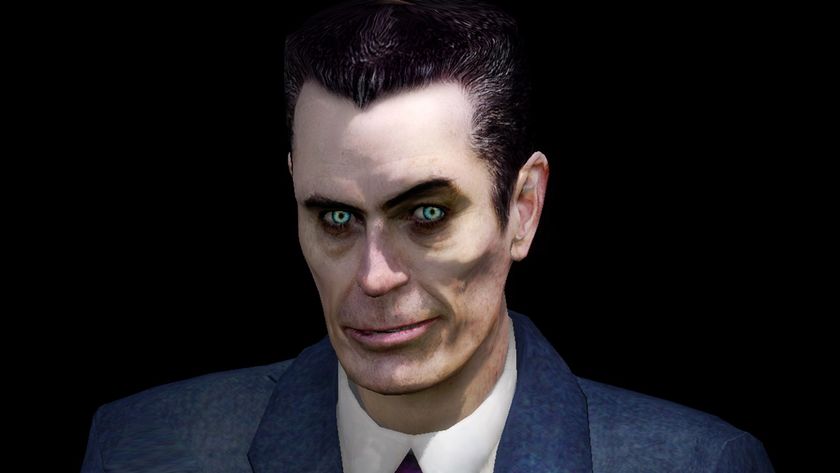
"That was not going to work for Valve": Canceled Half-Life spinoff game Ravenholm was "great, frankly," says Arkane founder, but it couldn’t survive under Valve's "very clear business plan"
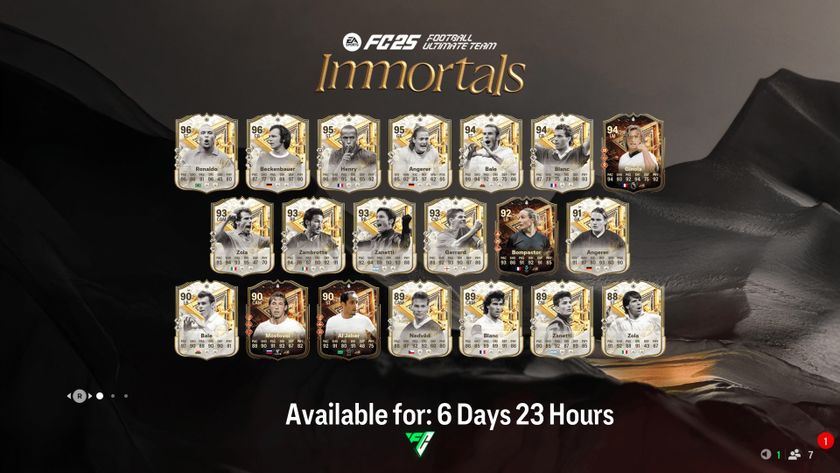
FC 25 Immortals guide adds OP Icons and Heroes cards
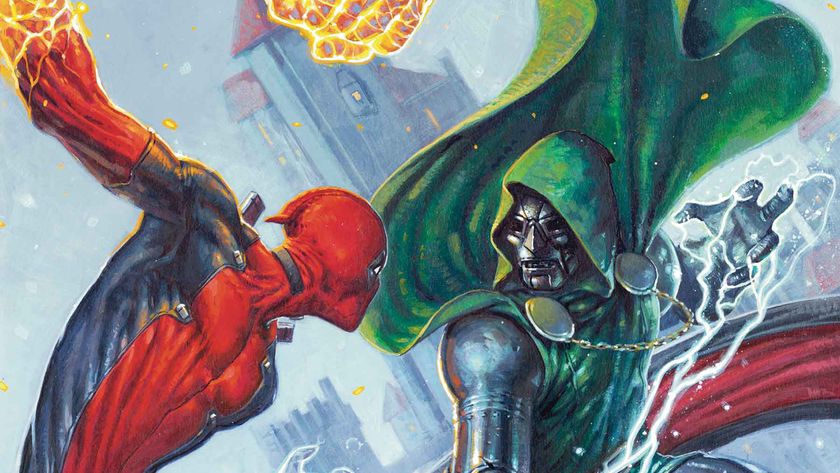
Wade Wilson absorbs the powers of the Fantastic Four to take on Doctor Doom in Deadpool Kills the Marvel Universe One Last Time #4
